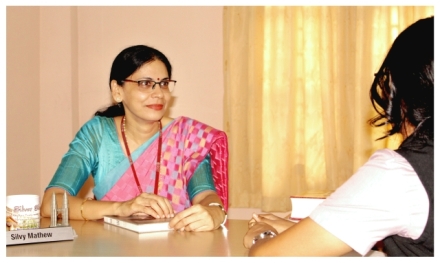Students Welfare

Deterioration of social control and support systems owing to changes in family structure and value systems, the negative influence of media and the social media in particular, the ever-escalating academic pressures, change in attitudes, peer pressure, etc. have all contributed to the evolution of an adolescent and young adult group in our society that is highly vulnerable to stress and clueless about where to seek help.
In tune with the Rajagiri vision of holistic excellence of our students, the psychological well-being of the students, as well as the students’ grievances, are taken care of by the Student Welfare Office. This office renders timely help to those in need, irrespective of the nature of their issues- academic, personal, interpersonal or familial. The Student Welfare Office (SWO) is managed by Dr. Silvy Mathew, who has a PhD in Psychiatric Social Work.
Procedure for Seeking Help
A student in need of help may be referred to the SWO by parents, teachers, friends, guardians, hostel wardens or any other person concerned with the well-being of the student. A student may approach the SWO directly as well.
After a detailed evaluation of the student seeking help, befitting interventions in the form of counselling, psychotherapy, family therapy and behavioural interventions are provided depending on the nature of the problem. A small proportion of students requiring pharmacological intervention are referred to concerned medical practitioners after evaluation.
Common Problems Addressed by SWO:
- Difficulty with Attention, Concentration and Memory
- Lack of Motivation
- Poor Self Esteem and Confidence
- Stress Related to Examination
- Specific Learning Disorders
- Attention Deficit Hyperactivity Disorder
- Communication Disorder
- Developmental Coordination Disorder
- Social Anxiety Disorder
- Generalized Anxiety Disorder
- Oppositional Defiant Disorder
- Disruptive, Impulse-Control and Conduct Disorders
- Obsessive Compulsive and Related Disorders
- Depressive Disorders
- Bipolar and Related Disorders
- Somatic Symptom and Related Disorders
- Substance-Related and Addictive Disorders
- Personality Disorders
- Stress & Adjustment Disorders
- Behavioural Concerns
- Interpersonal Issues
- Dysfunctional Family Issues etc.


